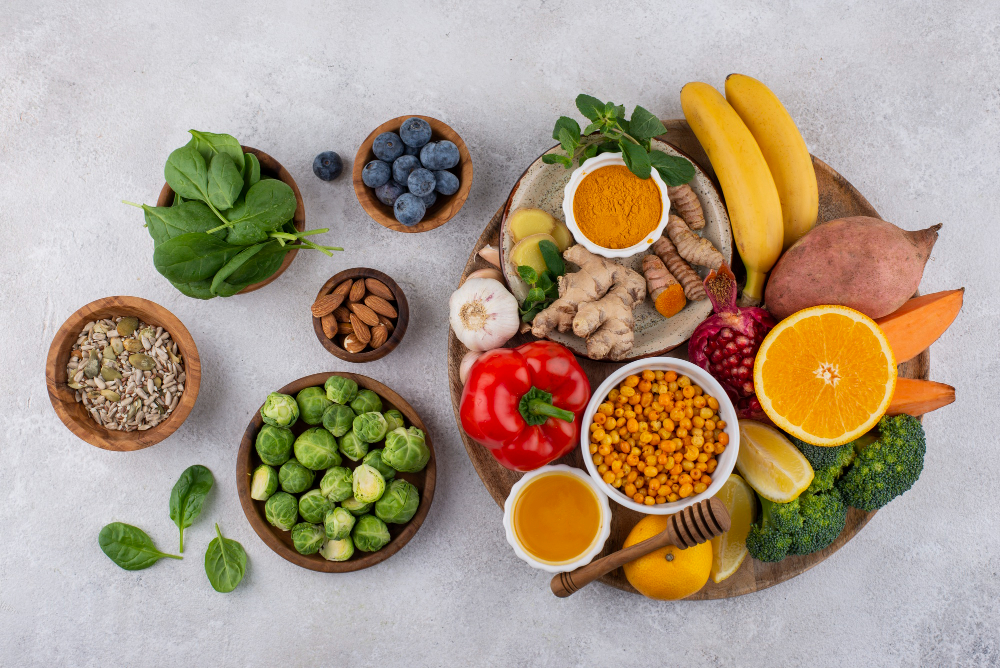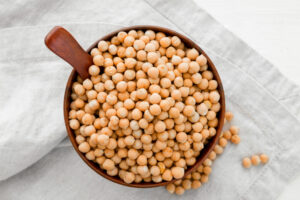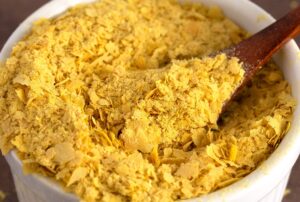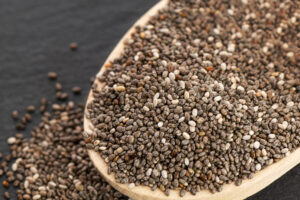Trending
High magnesium foods
Introduction
Magnesium is an essential mineral that plays a crucial role in many bodily functions, including muscle and nerve function, blood sugar control, and bone health

10 high magnesium foods
1. Almonds
- Approximately 270 mg per 100 grams.
- Almonds are not only rich in magnesium but also packed with healthy fats, protein, and fiber. They are a great snack option that can help curb hunger and provide a quick energy boost. Almonds are also beneficial for heart health due to their high content of monounsaturated fats, which help lower bad cholesterol levels. Additionally, they contain significant amounts of vitamin E, which is an antioxidant that protects cells from damage.
2. Spinach
- Around 79 mg per 100 grams (cooked).
- Spinach is a leafy green vegetable that is extremely versatile in the kitchen. It can be eaten raw in salads, blended into smoothies, or cooked in various dishes. Besides magnesium, spinach is rich in iron, calcium, potassium, and vitamins A, C, and K. Its high antioxidant content helps reduce oxidative stress and inflammation in the body, making it beneficial for overall health.
3. Pumpkin Seeds
- About 262 mg per 100 grams.
- Pumpkin seeds, also known as pepitas, are small, green seeds that are a great addition to salads, granola, or eaten as a snack. They are an excellent source of magnesium, iron, zinc, and omega-3 fatty acids. These seeds are also rich in antioxidants, which help protect the body’s cells from damage. Regular consumption of pumpkin seeds can support prostate health, improve heart health, and provide anti-inflammatory benefits.
4. Black Beans
- Roughly 120 mg per 100 grams (cooked).
- Black beans are a staple in many cuisines around the world. They are a rich source of fiber, protein, and a variety of vitamins and minerals, including magnesium, iron, and folate. The high fiber content helps improve digestive health by promoting regular bowel movements and preventing constipation. Black beans are also beneficial for maintaining healthy blood sugar levels and reducing the risk of chronic diseases such as heart disease and diabetes.
5. Avocado
- Approximately 29 mg per 100 grams.
- Avocados are a unique fruit known for their creamy texture and high content of healthy fats, particularly monounsaturated fats. They are also rich in fiber, potassium, and vitamins C, E, K, and several B vitamins. The healthy fats in avocados help improve heart health by lowering bad cholesterol levels and increasing good cholesterol levels. Additionally, avocados provide anti-inflammatory benefits and support skin health.
6. Dark Chocolate
- Around 228 mg per 100 grams (70-85% cocoa).
- Dark chocolate, especially varieties with high cocoa content (70-85%), is a delicious way to increase magnesium intake. It is also rich in antioxidants, particularly flavonoids, which help protect the heart and improve brain function. Dark chocolate contains iron, copper, and manganese, and its moderate consumption has been associated with lower blood pressure and improved cholesterol levels. It can also enhance mood by boosting serotonin and endorphin levels in the brain.
7. Edamame
- About 65 mg per 100 grams (cooked).
- Edamame are young soybeans that are often enjoyed as a snack or added to salads and dishes. They are an excellent source of plant-based protein, fiber, and several essential vitamins and minerals, including magnesium, iron, calcium, and vitamins A and C. Edamame supports bone health, aids in muscle function, and helps maintain a healthy weight. They also contain phytoestrogens, which can have beneficial effects on heart health and hormonal balance.
8. Quinoa
- Approximately 64 mg per 100 grams (cooked).
- Quinoa is a nutrient-dense grain that is gluten-free and often used as a substitute for rice or couscous. It is a complete protein, meaning it contains all nine essential amino acids. Quinoa is also high in fiber, which aids in digestion and helps maintain a healthy gut. Besides magnesium, quinoa provides significant amounts of manganese, phosphorus, folate, and B vitamins. Its antioxidants help reduce inflammation and support overall health.
9. Bananas
- Around 27 mg per 100 grams.
- Bananas are a popular fruit known for their high potassium content, but they are also a good source of magnesium, vitamin C, vitamin B6, and dietary fiber. They are convenient to eat on the go and can be added to various dishes like cereals, smoothies, and baked goods. Bananas help regulate blood pressure, support heart health, and provide quick energy. Their high fiber content aids in digestion and promotes a feeling of fullness.
10. Cashews
- About 292 mg per 100 grams.
- Cashews are a delicious nut that can be eaten on their own or added to various recipes. They are rich in healthy fats, protein, and fiber, making them a satisfying snack. Cashews also contain significant amounts of iron, zinc, copper, and antioxidants. Regular consumption of cashews can support heart health, improve bone health, and aid in weight management. They also provide a good source of plant-based protein for vegetarians and vegans




